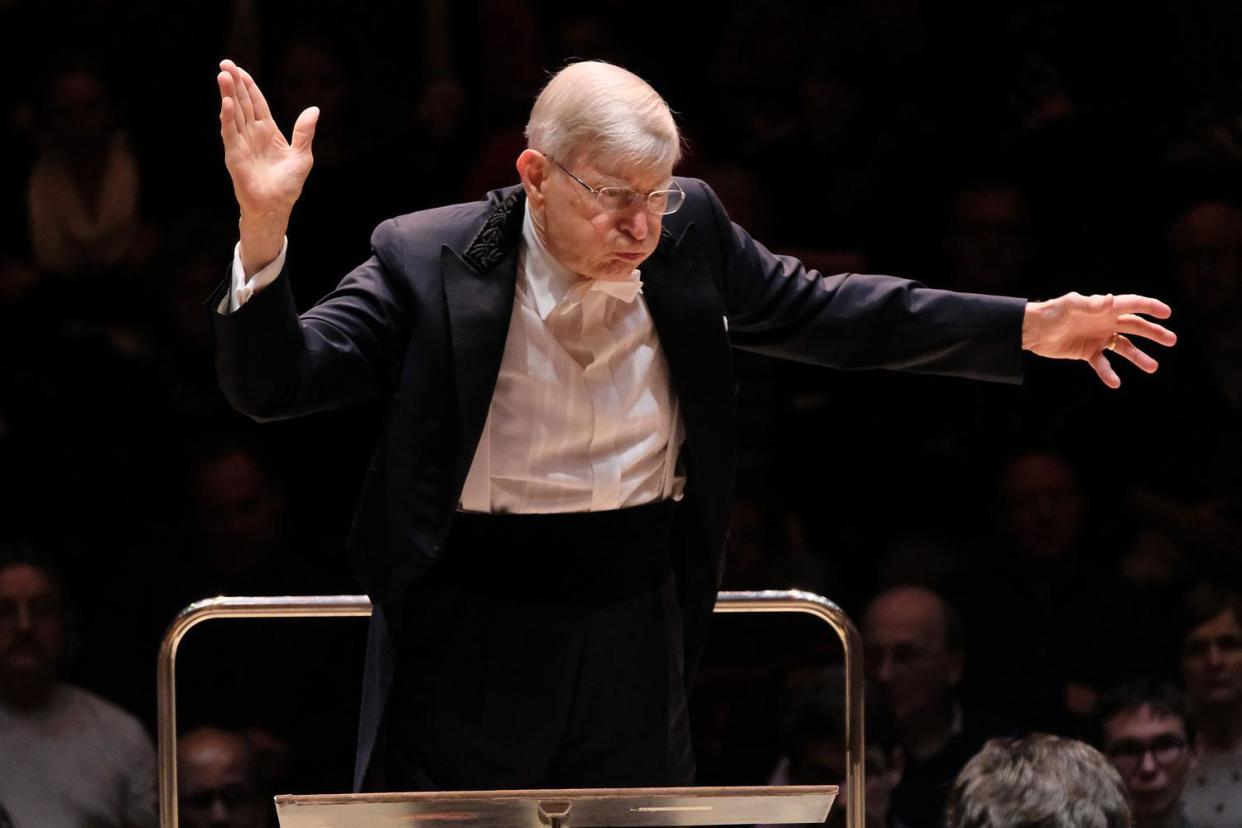Leipzig Gewandhaus Orchestra/Blomstedt review: Brilliant orchestra pays homage to its forebears

The world’s oldest civic orchestra, the Leipzig Gewandhaus already had almost 150 years’ experience up its sleeve when it premiered Bruckner’s Symphony No 7 in 1884.
Today’s orchestra, playing the same work, draws on that tradition to a remarkable extent, producing a unique and richly burnished tone colour. You notice the difference even when the players are tuning up. Throughout, they created sonorities of majestic refulgence and amplitude.
Speaking of longevity, the Leipzigers were conducted on this occasion by Herbert Blomstedt, a spry nonagenarian, who generates momentum not so much with brisk tempi as with taut rhythms throughout the texture. His gestures range from four clenched fingers waving elegantly like a dorsal fin to wide-armed exhortations that elicit the most expansive playing from these high-calibre musicians. Digging deep into the orchestral fabric, he sculpts big, muscular phrases into paragraphs characterised by finely calibrated dynamic levels.
For Beethoven’s Triple Concerto in C, there was the luxury of a trio of distinguished soloists. Gautier Capuçon brought his unrivalled tone and eloquence of phrasing. The pianist Kirill Gerstein played with the expressiveness that has catapulted him into the premier league in recent years. Leonidas Kavakos has long been regarded a top-division violinist, even if his tone sounded under-nourished alongside Capuçon and Gerstein.
The Gewandhaus Orchestra are regular Barbican visitors, though the standard they set will not be easily surpassed, even by them.

 Yahoo News
Yahoo News 
